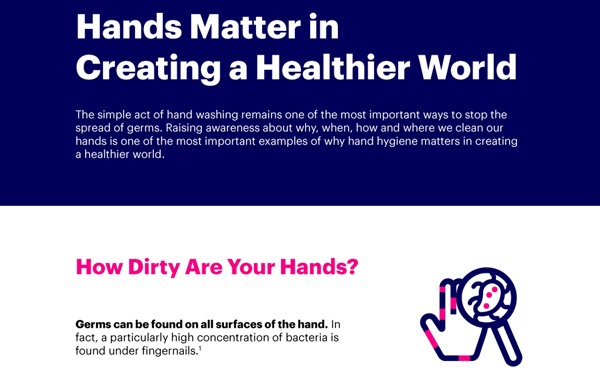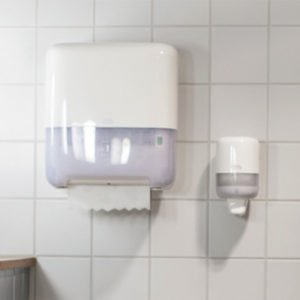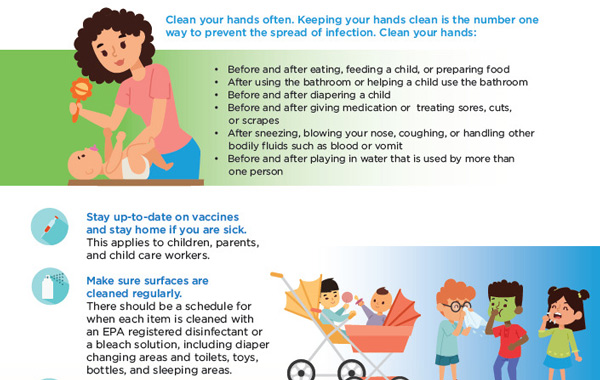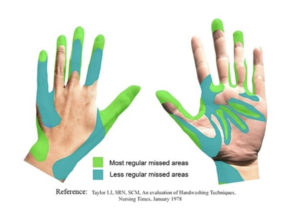The flu is a respiratory disease caused by the influenza virus. It’s spread through contact with contaminated surfaces or people.
Washing your hands is the best defence against transmitting germs to your body.
Studies reveal that only 5% of people wash their hands well. The average time spent washing is only six seconds, which is a far cry from the recommended 20 seconds.
With such bad hand washing habits, we are spreading the virus and infecting ourselves.
Touching your face with dirty hands is the cause of many respiratory diseases. What if I told you that these diseases are often self-inflicted?
This is good news. It means you can prevent it by washing your hands as often as possible. Having hand sanitiser can come in handy when you don’t have access to soap and water.
Proper Hand Washing Technique
Hand washing is important for everyone. Wash your hands as soon as you feel they are dirty. There are also specific instances where you should always wash your hands. They include:
- Before, during and after food preparation
- After using the washroom
- After touching hospital surfaces
- After petting animals and gardening
- Before eating anything
- After coughing, sneezing or attending to a patient
Since few people follow the proper hand washing routine, here is a refresher on how to do it. The simple steps to effective handwashing are as follows:
- Place a small amount on one palm.
- Rub all over your hands until they dry up.
- The process should take at least 15 seconds.
At the sink:
- Wet your hands with running water.
- Add a coin-sized amount of liquid soap.
- Rub your hands until it lathers well.
- Rub all over your hands, in between your fingers and under the fingernails.
- Scrub for about 20 seconds and sing the ‘Happy Birthday’ song twice to help you time it.
- Rinse your hands and dry them with a paper towel.
- Close the tap and open the door with the paper towel before immediately tossing it.
If you are under the care of health professionals, ensure they maintain good hygiene. They are usually vigilant, but it’s good to stay aware. Feel free to raise your concerns if something is not right.

Click image to view the whole Infographic. Source CleanLink
How Hand Washing Prevents the Flu
A simple change to your hand hygiene habits can help you avoid the flu. Hand washing is a great tool for you and the community. Take note of the ways in which it protects you.
1. Hand Washing Prevents the Spread of Respiratory Diseases
Respiratory diseases are not spread by dirty hands. They start when dirty hands touch your face and the germs get access to your body through the nose, mouth or eyes. The loop must be completed to cause disease.

Hand Drying keep your workplace as safe as possible
The best defence against the flu is to avoid touching your face. This is a hard habit to break since most of the touching is subconscious. The best solution is to keep your hands as clean as possible. That way, if you happen to touch your face, your hands are germ-free.
Good hand washing habits keep your hands as clean as possible. The germs in the droplets can stay alive on surfaces for up to 24 hours. Use and throw away tissues after sneezing or coughing. This prevents you from touching your face and spreading the droplets. Do the same for tissues that you use to dry your hands after washing.
Hand washing is a social act. It benefits the people around you because you can’t transmit infections to them. It is a considerate act that we should all take up. If you are sick, you should self-isolate, observe great hand hygiene or sneeze into your elbow if you’re out in public.
2. Hand Washing Prevents Self-Infection
Washing your hands with soap removes infection-causing germs. This is important because dirty hands can pass these germs into your body. Clean hands have a big impact on health. Hand washing education reduces diarrhoea cases by 23-40% and respiratory illnesses by 16-21%.
Removing germs from your hands is important for several reasons:
- The germs could get into the food or drinks you are preparing.
- Germs from dirty hands are transferred to household objects and cause cross-contamination.
- Touching your eyes, nose and mouth is often subconscious and germs can get into the body and make you sick.
- It prevents infections of the eye and skin, as well as respiratory diseases.
In the workplace, the best prevention tactics are non-pharmaceutical. These are measures that don’t use medication to minimise risk. The flu shot is not always an option. Especially in pandemics where the vaccine might not exist. The best Non-Pharmaceutical Intervention (NPI) is hand washing.
NPI guidelines for the workplace include keeping the workspace clean. This involves regular disinfecting of all surfaces as well as hand washing education. Providing cleaning and sanitation supplies is helpful as well. These include washing stations and hand sanitiser.
3. Hand Washing Keeps Crowded Areas Safe
Hand hygiene education is important at home and at work. A decline in enforcing hygiene happened due to changing roles in modern households. Parents may teach kids how to wash their hands, but the emphasis stops once they are older.
A rise of community-based infection signals a decline in hand hygiene. Clean hands are a social responsibility that’s neglected by both adults and children. Germs are unforgiving, and laxity in hand hygiene can lead to a pandemic. This increases the burden of infectious diseases on the economy. We can see a rise of related deaths by 22% between 1980 to 1992 globally.
It’s not surprising that teaching is one of the top germ professions. This is due to a high bacteria count per square inch in schools. A frightening thought for any parent. Touch screens and phones are often dirty because they are passed around and dropped frequently. Keep your kids safe by reinforcing the importance of hand washing.

Click image to view the whole infographic. Source Medicalxpress
If you think only elementary schools are dirty, think again. Colleges and universities have a high rate of cross-contamination as well. An effective hand hygiene program has ripple effects across generations. Compliance with hand hygiene is at 58% among elementary kids. Only 28% of girls and only 8% of boys use soap.
The responsibility of hand washing awareness is shared. Good hand hygiene reduces absenteeism, costs of infection and other associated costs. A family-centred approach works best. With the rise of social media, we can use edutainment to educate the community.
4. Hand Washing Keeps Your Immunity High
The body is an efficient machine. The immune system does a great job of self-regulating. That’s unless it’s hindered by things like allergies, autoimmune diseases or medication. Healthy habits increase your immunity. They include:
- Eating a diet rich in vegetables and fruit
- Frequent exercise and movement
- Reaching and maintaining an optimal BMI
- Get between seven and nine hours of sleep daily
- Reduce your stress levels
When washing your hands, all you need to protect your immune system is soap and water. Antibacterial soap is unnecessary since it can lead to microbial resistance bacteria. Scrub for at least 20 seconds with soap and you are good to go.
Have you noticed that it’s hard to find a hand dryer in medical facilities? This is intentional. Avoid hand dryers because they blow germs into your face and all over the room. The best way to dry your hands is to rub them with a paper towel that you can immediately dispose of.
Wash your hands often to stay healthy. This isn’t just after visiting the washroom. You touch surfaces and people throughout the day; it is important to disinfect your hands when you get the chance. That is the key to good hand hygiene.
5. Hand Washing Fights the Spread of Epidemics
At the workplace, stop the spread of the virus through concentrated hygiene measures. Hand washing is your biggest ally in keeping infection at bay. Some of the measures include:
- Keeping a stash of cleaning and hygiene supplies like tissues and soap
- Cleaning frequently touched surfaces and items like door handles, phones and keyboards
- Training people to handle each other’s work in case they have to go home and self-quarantine
When a colleague gets sick, allow them to go home as soon as possible. They may cough into a tissue or their elbow, but how many people wash their hands afterwards? There is a high risk of cross-infection, so prevention is your best plan. The droplets spread easily, and a contaminated surface can infect many people.
Your immunity is vulnerable in aeroplanes and hotels. Bring sanitising wipes to clean all the surfaces you’ll need to touch. Conde Nast travel recommends using alcohol wipes to wipe your hotel phone, desk and remote. Wash your hands to ensure you’re safe.

Source Twitter
In public places, surfaces like elevator buttons and gas pumps can cause cross-contamination. Avoid touching them as much as possible or use an antibacterial wipe to handle them. Any place with crowds has the potential to spread infections. Avoid them as much as you can.
Hand Washing Battles the Rise in Antibiotic Resistance
A rising threat to global immunity is antibiotic resistance. Hand washing solves this by reducing the occurrence of respiratory and gastrointestinal diseases. Antibiotics are often wrongly prescribed for these preventable conditions. Reducing the number of infections decreases the need for antibiotics. Overuse of antibiotics is the leading cause of resistance.
Hand washing prevents the spread of disease by antibiotic-resistant bacteria. It gets expensive to treat conditions that are resistant. Proper hand washing education can save lives and money for our economies.
The flu is preventable with a conscious choice to keep hands clean. It slows down epidemics, reduces self-infection and increases your immunity. As a manager, it is your responsibility to keep your workers safe. Fight the flu before it gets to you and your family.
Photo: Gentle07


